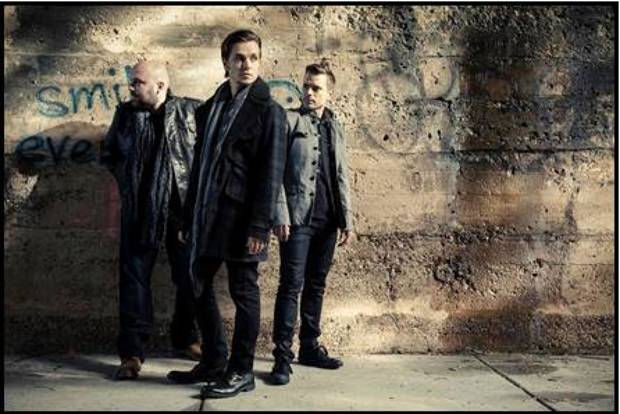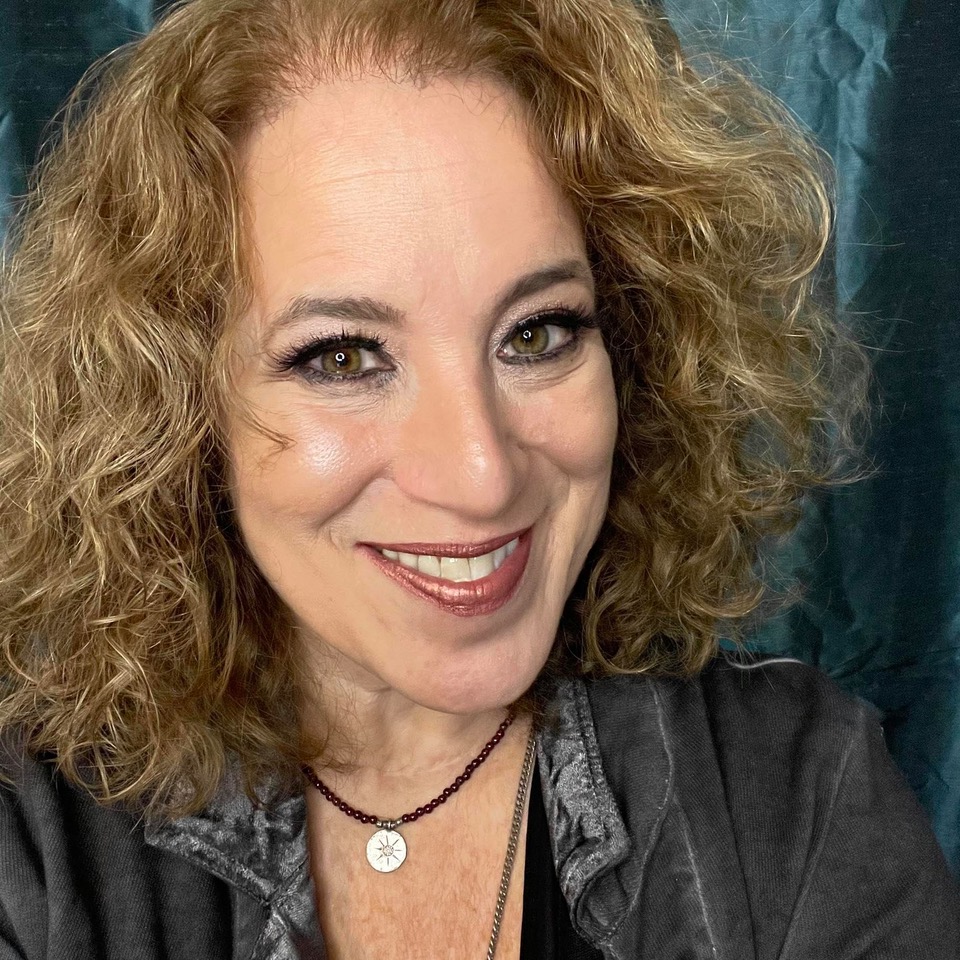Interview: For Jonathan Jackson Everything is Possible

You’ve seen Jonathan Jackson.
He’s that guy that seemed like kind of a jerk in season one but turned out to be a good guy in season two.
What am I talking about? He appears as Avery Barkley on the hit TV series Nashville.
But the cool thing about Jackson, and pretty much all of the talent on that show, is that they are all really and truly amazing musicians as well as great actors.
Jackson started off early as a musician, but a twist of fate lead him to a long term part on TV’s General Hospital, for which he won several daytime Emmy awards. Now a staple on Nashville, he has the opportunity to combine his two loves into one neat and creative package.
Here I talk to Jackson about his own band, Enation, their recent single, “Everything is Possible” and upcoming album Radio Cinematic, due out October 14. Plus Jackson’s live performance on the Acoustic Nation stage during Music Industry Day at Nashville NAMM on July 19. Check it out and come on down!
Why don’t you tell me about the new album and maybe a little of what we can expect from you?
All the latest guitar news, interviews, lessons, reviews, deals and more, direct to your inbox!
We’re really excited about it. We're pretty much at the finishing stages for the whole record. So we kind of have a good idea of what it is.
There are a lot of different colors in there. There’s some anthemic rock. The first single is definitely one of those sort of universal songs. We’ve actually played it for a really long time, so we’re putting it out as the first single. We’ve been able to test it on the road for a while. We’ve seen a great response from people.
It’s very uplifting. It’s interesting how some of the most uplifting songs come from difficult places and that song for me came from a tough place. It was sort of a revenge on the desire to give up. It was kind of pushing back and saying, “No, everything is possible. I’m not going to give into despair.” That can play out for the listener in many ways with whatever they’re really going through. That’s kind of where the song came from.
Hear "Everything Is Possible" below:
Do you feel like there’s a central theme or message to the album as a whole?
Yeah. The album definitely has a theme and a through line. There’s sort of a story. I’m a huge fan of albums. In this day and age, people are making songs and the albums aren’t really connected to each other often times. I’ve always loved concept records like U2’s Achtung Baby, Dark Side of the Moon and all that kind of stuff. So this one definitely has that.
The opening track sets the stage for the whole record and there are some themes in the lyrics that kind of play out through the entire record. Certain things actually come around. We even took snippets from a bunch of different songs and put them inside other songs.
But I guess the themes are similar to “Everything is Possible,” which is definitely an anchor in those themes. The honesty with how difficult life is at some times and then also, how do you find that place within to sort of push through and not give up. That’s kind of one of the main themes.
You and Enation have been together for a while now. Has your style evolved over the years?
It’s certainly grown and matured. In the beginning, we were a little bit all over the map. We all like a lot of different styles of music and that’s a great thing because it gives us a lot of different directions to go. But sometimes it’s difficult to kind of zero in.
We’ve been playing together for over 10 years. It’s almost hard to put into words. You just kind of start to understand each other musically and you have this language that you all speak together. We push together in different ways, but we’re a tight-knit group. My brother’s the drummer and our really great friend Daniel plays bass.
Do you find it a challenge to translate your recordings into a live performance application since there are only three of you?
There are some of those songs that we create in the studio and often times, those are the more difficult ones to translate backwards into how we’re going to execute it live. We love strings and things like this.
We’ve sort of unashamedly integrated background tracks of that kind of stuff and looked at it as part of our show. I’ve really studied bands like U2 and Coldplay and other people and looked at how they do that. The makeup of the instrumentation for us is similar to U2 in the sense that it’s guitar, bass, and drums, and a singer. And yet, they have tons and tons of different instrumentation going on a lot of the times.
And then it’s really fun for us to turn all of that off and just jam the three-piece on some of the more rock-oriented songs. We kind of try to balance it, I guess.
What influenced you to pick up the guitar in the first place in your early years?
Wow, I was eight years old when I first started playing. From what I can remember, it was probably that my uncle played. He still plays guitar. I must’ve just seen him playing and wanted to try it out. The earliest memory that I have is of him showing me a couple things on the guitar. He was kind of my first guitar teacher. I took lessons for a few years and kind of went kicking and screaming. My parents said, “Hey, you committed to this. So you’re going to do it.” I’m really thankful that I did.
So how did you move from your focus on music to getting into acting?
My family took a vacation to Universal Studios when I was really young. Me and my brother Richard – who’s also an actor – were both really intrigued by seeing the behind the scenes stuff of how films are made. We kind of begged our parents to get into acting.
And they said “Okay?”
Yeah, they did. We took acting classes in Portland, Oregon for a couple years and then moved to Los Angeles. I think my parents thought it was going to be a six-month experiment.
And then we come home and I booked General Hospital, and then I booked Saved by the Bell: The New Class, and we just have kind of been doing it ever since.
The whole time we were doing that, we were also doing our music and developing that. We played at The Roxy and Whisky A Go Go as teenagers. We recorded lots of home records. My dad had a little studio in the basement. When I was 11 years old, we were making records and writing songs and all that kind of stuff. We’ve kind of been doing it the whole time. And now, it’s a nice moment where those two worlds are kind of coming together.
Yeah, so I wanted to ask you about that. Is this your first role where you actually get to play music onscreen?
Yeah, it is. It’s been surreal ‘cause usually I would do a film or TV project, and then as soon as I finish that, jump right back into the studio or go on tour and play around. That’s what I’ve been doing for quite a while. To actually be on a set where I’m in a club, playing music – and yet it’s for a show – just those two worlds coming together was really amazing and kind of shocking. It’s been really fun.
Have you had a chance to perform any of your own material on the show?
Yeah. I wrote a song called “Morning of the Rain” and Avery performed it last season, toward the end of Season One, which was really fun. That was a blast.
Let’s talk about your gear for a minute. Can you tell me what your go-to guitars are?
I have a Les Paul Goldtop, which is probably what I play the most live with the band. Also, I just picked up a Gibson 335, which I’m really, really loving as well, so I’m probably going to be integrating that quite a bit into the live shows. I also have a couple really nice Teles. I’ve got a 60th anniversary Tele, which has a Bruce Springsteen wood finish look to it, which is really fun.
I have a Rickenbacker as well, which is I think it’s a 75th anniversary Rickenbacker. Beautiful, really dark purple. That’s a really, really beautiful guitar as well. I got a wonderful Strat from my uncle quite a few years ago. That guitar’s been with me for quite a while. And actually, my uncle was kind enough to get me a 1953 Gretsch hollow body for my birthday. So that’s been really fun as well.
What about acoustics? What do you play there?
I play a Taylor acoustic. I’ve had that one with me for quite a while as well. That’s been great. I really like taking acoustics through some effects pedals and kind of putting some reverb and delay and things like that and making it a little bit more atmospheric. That guitar does really well for that kind of stuff.
What about amps? What do you plug into?
Vox, usually, for the rock stuff. Vox AC30. And I have a Fender acoustic amp, mainly for small room gigs. It’s a really beautiful amp, actually. It has some really nice built-in reverb and delays and you can plug a vocal into as well and fill up a room with guitar and vocal, and it just sounds really nice.
So, what’s next for you and the band? I read that the album is slated for release in the Fall.
Yeah. We’re probably not going to be doing full-on touring, but we’ll definitely be playing shows. We’re probably going to fly to New York, and fly to LA, and just have those kinds of shows. And then over the filming time, I’ll try to do some shows as well, probably next Spring we’ll do a full-on tour.
Well, great. I look forward to seeing you next month in Nashville on the Acoustic Nation stage at Summer NAMM!
Thanks, I appreciate it.
Find out more at www.jonathanjackson.com.
Laura B. Whitmore is a music industry marketing veteran, music journalist and editor, writing for Parade.com, Guitar World, and others. She has interviewed hundreds of musicians and hosts the She Rocks Podcast. As the founder of the Women’s International Music Network, she advocates for women in the music industry and produces the annual She Rocks Awards. She is the Senior Vice President of Marketing for Positive Grid, making the world safe for guitar exploration everywhere! A guitarist and singer/songwriter, Laura is currently co-writing an album of pop songs that empower and energize girls.

